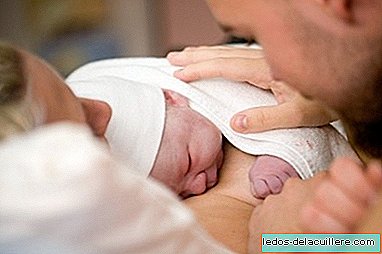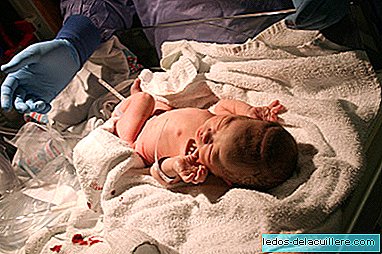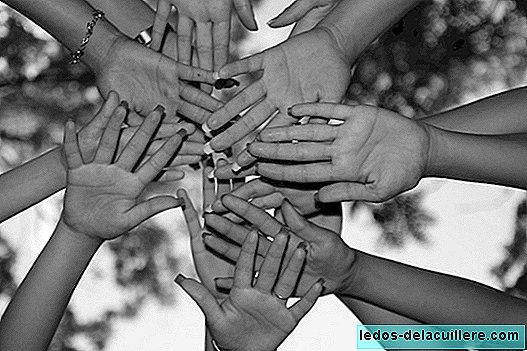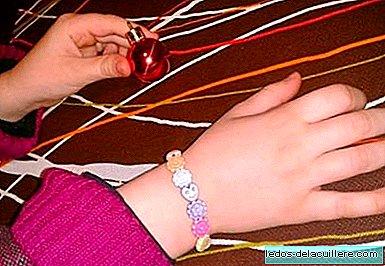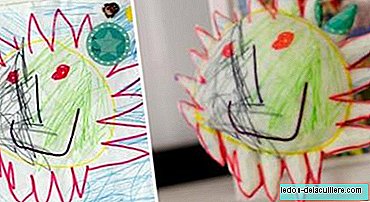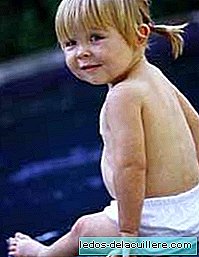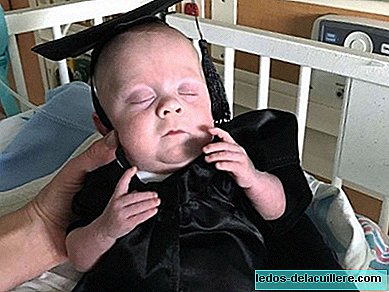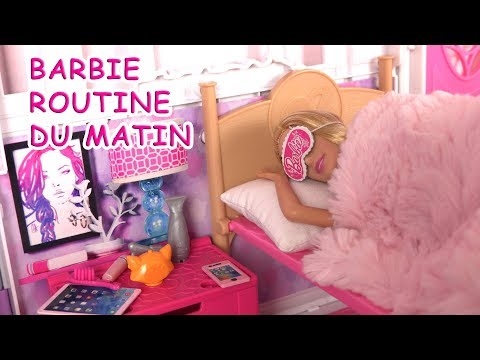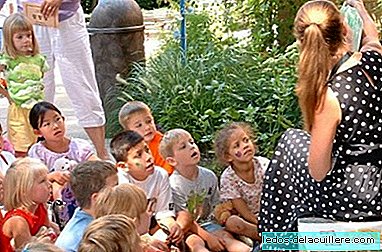
Today we are going to talk about Education in our Babies interviews and more and we have invited the psychologist Liliana Castro Morato to talk with us about the education system and the proposals to improve it.
Liliana Castro is a mother and psychologist, she directs the Camino Claro Foundation project that develops actions in Colombia to improve the emotional and perinatal health of mothers and children, besides carrying out her work as a professional in Professional Services for Primary Health and Human Welfare. We can read it regularly in his blog, Cavilaciones.
Welcome and thank you very much, Liliana, for being with us. Do you introduce yourself to our readers?
A great pleasure Mireia, being interviewed by Babies and more and sharing my thoughts about education, product of my exercise as a mother, educator and professional of Psychology.
Tell us about your professional and personal career, Liliana, because I know that motherhood made you completely rethink the practice of Psychology
Graduated in January 1997 as a Psychologist at the Universidad del Norte, I started my professional career in educational institutions, doing private consulting and working populations victims of social violence that unfortunately abounds in my country. In this professional practice, my interest in the appropriate assessment of children made me specialize in Psychological Evaluation Techniques and I have been a professor at the Faculty of Psychology of the Cooperative University of Colombia. For several years (half of my current professional career) I blindly believed in technical procedures, manuals and other statistical guides that showed you normal and pathological. That egotistical capacity of those who believe they have the knowledge to label and remedy the life of the other who does not know.
Did your son change all the schemes?
Life showed me another way of learning and unlearning with motherhood.
In this role, I unknowingly began to understand the understanding of the unique development, of functional diversity and with pain the path of unlearning of standardized and behavioral schemes that make you believe that what is not within the expected “is wrong” and you should do everything possible so that it enters into what is "right". Concepts such as oppositional defiant disorder, attention deficit hyperactivity disorder, dysfunctional and depressive child were no longer part of a book, nor were they the picture of the child who was in school or my client's son; but they were part of my son's life, which was my life. Now the challenge of understanding was greater and that was the beginning of my new direction as a woman, mother of 3 children, educator and professional. Today I am the manager and director of the Camino Claro Foundation (Non-Governmental Non-Profit Organization) but also as Doula, Breastfeeding Consultant, Educator of Sexual and Reproductive Rights, and Consultant and Empowerment Psychologist in Professional Services of Primary Health and Welfare Human.
What is your opinion about the formal education system?
Being products of education, the vision of an ideal school is almost always linked to improving what is supposed to have helped generations to be better people and live in society.
Literacy, the first objective of the school (incorporation of literacy and basic mathematical processes for the development of common life) was merged with other objectives that, far from sharing free and respectful codes of coexistence, progressively inserted codes of life and social behaviors in order to make individuals "fit" for a systematized and productive society. Codes and behaviors that become rigid paradigms that make today's school one of them.
Is there the ideal school?
The ideal school is therefore quite the opposite of what we see today, it is a free school that allows the encounter of each human being with its potential in order to enjoy and strengthen them.
It is that space that far from generating academic excellence allows the development of human excellence, understanding that humanity implies pluralism, diversity and energy in constant recreation.
The ideal school then is the school that removes the paradigm, where there are no established ages to learn this or that, where a large can teach a small, or a small can teach a large, from the horizontal relationship of the accompanying educator and the boy. With this model, no one would be left behind, each one follows their learning pace, allowing care, collaboration, inclusion and not competition among those who share educational processes. It would eliminate discrimination and subjugation, deep social ills that are created in school "j-classrooms."
What do you think the education system fundamentally fails?
The education system is sustained from the adult-centric expectation and not from the needs and expectations of children.
Are all your goals really to teach children to reach their maximum power and to be free?
I do not think so. It is sustained from the expectation of the economic and productive system and not from the human expectation of free and individual development. We could say that it is being used as a tool of alienation and not a tool for the development of human plenitudes and freedoms.
In the educational system, the insertion of codes of obedience, submission and respect for authority and not creativity as the evolution of individual processes from early childhood prevails. The children are directed to learn according to patterns framed in scales of thought and development, instead of being accompanied in their rhythms and encounters of imaginary and realities.
Is it adult centered?
Yes. It is taught to color, not to go out of the margin, to make the human figure, to draw a flower, to read the world as they color, draw, frame and read the world adults. Disconnect human beings to put out of them the compass that directs their lives, that compass driven by who dominates or has power. Children and young people learn to seek recognition outside and ignore themselves, the educational system has broken their self-confidence, a fundamental thread for the emergence of autonomous, critical and creative human beings.
Tomorrow we will continue this interview with psychologist Liliana Castro Morato and we will find out more about how the school could include the emotional and intellectual needs of children in an environment of greater respect for children.


